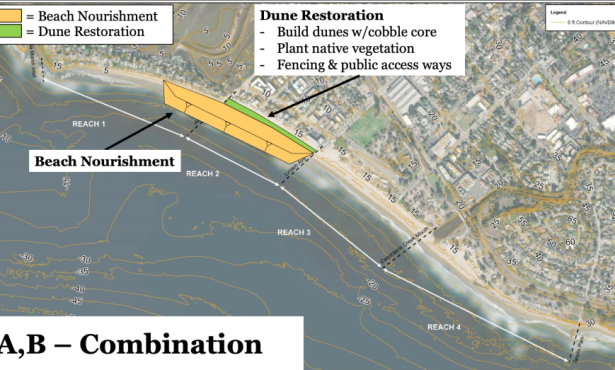Boaters Urged to Remain Watchful for Quagga and Zebra Mussels
Labor Day Reminder from Department of Fish & Game
California’s multi-agency invasive species taskforce cautions watercraft users this Labor Day to guard against spreading the aquatic Quagga and Zebra mussels to uncontaminated waters. Inspections will be conducted at launch sites on most major freshwater lakes. Watercraft and all equipment that comes into contact with the water must be clean, drained and dry.

The taskforce is comprised of California departments of Fish and Game, Water Resources, Parks and Recreation, Boating and Waterways, and Food and Agriculture. Federal partners include U.S. Forest Service, Fish and Wildlife Service, Army Corps of Engineers and the Bureau of Reclamation.
“The vigilance of boaters and watercraft owners has been the key in prohibiting the widespread invasion of these mussels into California,” said Susan Ellis, Department of Fish and Game’s statewide coordinator of invasive species. “Since 2007, no new population of mussels has been discovered that traces back to hitchhiking aboard watercraft or trailers. The state’s responsible boaters are commended for taking the steps necessary to prevent the spread of these mussels, averting the environmental and economic disaster these mussels can cause.”
The taskforce reminds boaters that moving watercraft is the primary threat of transporting the mussels. Anyone who accesses freshwater aquatic environments should take the following steps:
● Inspect all exposed surfaces-small mussels feel like sandpaper to the touch
● Wash the hull of each watercraft thoroughly; preferably with high pressure/hot water
● Remove all plants and animal material
● Drain all water and dry all areas
● Drain and dry the lower outboard unit
● Clean and dry all live-wells
● Empty and dry any buckets
● Dispose of all bait in the trash
● Wait five days and keep watercraft dry between launches into different fresh waters
Boat owners who fail to follow the rules on inspections will be turned away. If the vessel carries the mussels, the owners risk quarantine. In August, a Southern California man was fined $5,000 by the Tahoe Regional Planning Agency’s legal committee after ignoring boating rules designed to stop the spread of Quagga and other aquatic invasive species.
Quagga and Zebra mussels range from microscopic to the size of a fingernail. They are prolific breeders and attach themselves to hard and soft surfaces, such as boats and aquatic plants. They adversely affect boaters by:
● Ruining engines by blocking the cooling system-causing the engine to overheat
● Increasing drag across the bottom of the vessel, reducing speed and wasting fuel
● Clogging and jamming a boat’s steering equipment
● Requiring time and money for scraping and repainting of boat bottoms
● And colonizing all underwater substrates such as boat ramps, docks, lines and other underwater surfaces requiring constant cleaning
The establishment of an invasive mussel population wreaks havoc with the environment, disrupting the natural food chain and releasing toxins that affect other species. Spread of the Quagga could result in millions of dollars in damage to water transport facilities.
These invasive mollusks were first detected in California in January 2007, in Lake Havasu on the Colorado River. Quagga mussels were discovered a few months later in water delivered by the Metropolitan Water District of Southern California and the San Diego County Water Authority. Both systems draw from the Colorado River.
Thus far, the mussels have not been found in California’s State Water Project (SWP), which draws from northern California watersheds. Environmental scientists are monitoring the system, the largest water and power system in the United States. The main risk of mussel introduction in the SWP is from boats carried by trailers.
For more information on the Quagga mussel response, visit the DFG webpage.


